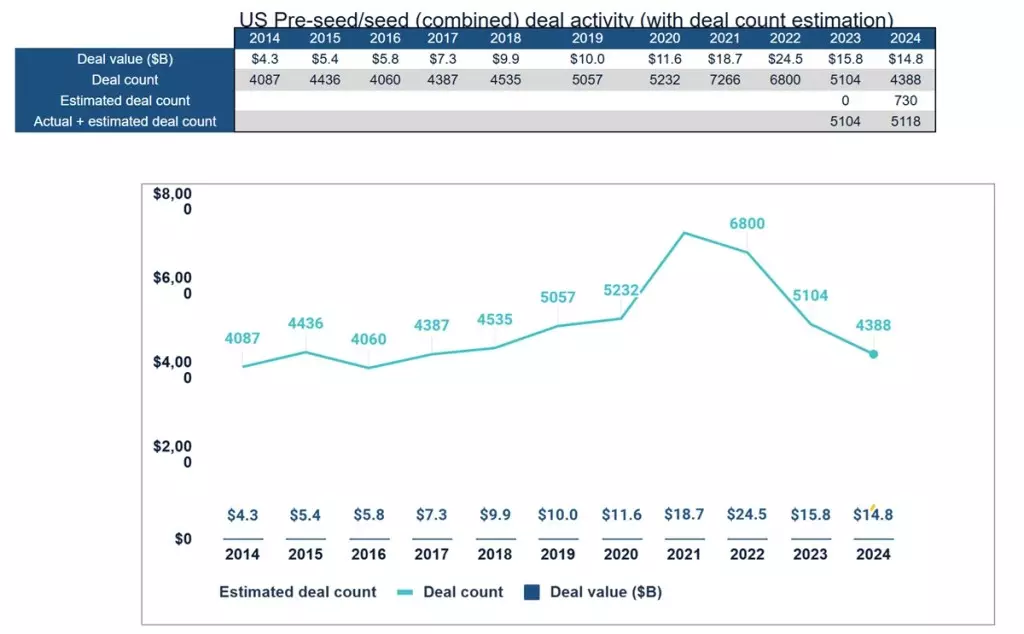As we approach 2025, a striking collection of U.S. unicorns—startups with valuations exceeding $1 billion—prepares to enter the public arena. Drawing on insights from the PitchBook/NVCA Venture Monitor for the fourth quarter of 2024, the landscape appears complex and promising. The interplay of potential public offerings, regulatory changes, and evolving market dynamics shapes a critical juncture for venture capitalists (VCs) and startups alike.
The term “unicorn” represents not merely a valuation but also the aspirations of innovative startups in an unpredictable environment. PitchBook employs an advanced VC exit predictor, leveraging machine learning alongside its extensive database of financing rounds and investor activities. This tool evaluates the likelihood of a startup’s exit into public markets or acquisition, offering a quantitative means to assess entrepreneurial performance and market readiness. Startups are monitored against criteria that include acquisition probability, the chances of going public, failure to exit, or achieving financial independence.
This predictive methodology is particularly relevant as it incorporates insights from undisclosed mergers and acquisitions (M&A), underscoring the complexities surrounding value realization in a fluctuating market.
Despite a notable rise in completed financings in 2024, the venture landscape grapples with significant obstacles. Nizar Tarhuni, EVP of Research and Market Intelligence at PitchBook, highlights that while early-stage AI transactions appear robust, they mask underlying vulnerabilities within the broader VC ecosystem. This environment is characterized by mismatches in valuations between buyers and sellers, fueled by inflated funding rounds, coupled with regulatory constraints that dampen market enthusiasm.
The prospect of meaningful exits remains uncertain, as the industry emerges from a phase marked by caution and recalibration. Moving into 2025, there exists a cautiously optimistic viewpoint. Proposed changes in regulatory frameworks and evolving expectations around startup valuations may catalyze a revival in investment interest.
Within this anticipated pivot in the public offering market, several U.S. tech unicorns stand out based on their predicted IPO probabilities. PitchBook’s analysis indicates that Anduril, an aerospace and defense firm co-founded by Oculus creator Palmer Luckey, is projected to have a staggering 97% chance of going public by 2025. Similarly, Mythical Games, rooted in the gaming sector and led by John Linden, shares the same promising forecast.
Other notable mentions in the high-probability category include Ayar Labs and Databricks, reflecting the diverse sectors from which this new wave of entrepreneurs is emerging. Interestingly, firms like Impossible Foods and SpaceX are also flagged with substantial IPO probabilities, further emphasizing the intersection of technology and innovation prevalent in today’s entrepreneurial ventures.
The evolving regulatory climate also cannot be understated. Changes in leadership at key regulatory bodies might alleviate liquidity pressures rippling through portfolio companies. Bobby Franklin, CEO of NVCA, notes the critical role that regulatory transformations can play in shaping the investment landscape. The ongoing discussions around tax reform, including prospects for renewing the R&D tax credit, represent pivotal movements towards bolstering the venture ecosystem and promoting innovation in the U.S.
This evolving relationship between venture capital and government presents a compelling narrative. As VCs increasingly engage with policymakers, there lies an opportunity to underscore the significant contributions of venture-backed companies to economic growth and competitiveness.
The journey towards 2025 for U.S. unicorns teems with a blend of optimism and caution. While there are murmurs of a resurgence in the IPO market, existing challenges linger. The interplay between evolving market dynamics, regulatory reforms, and the adaptability of startups will ultimately shape the narrative of venture capital and public offerings in the coming years. As both entrepreneurs and VCs brace for what lies ahead, the expectation remains that innovation will fuel not just individual success but broader economic revitalization.


Leave a Reply
You must be logged in to post a comment.